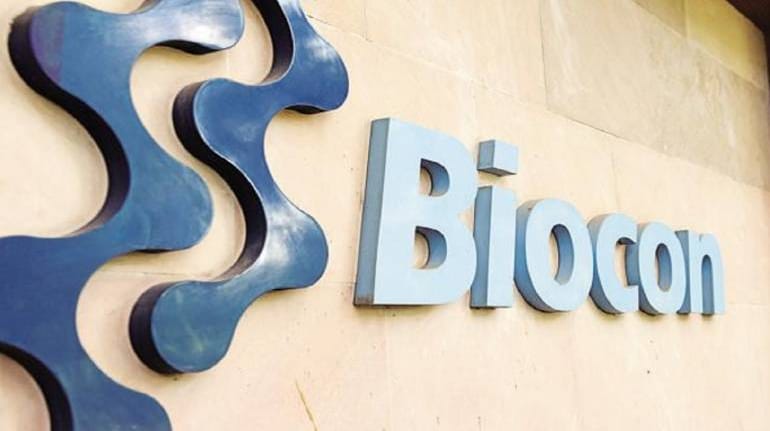



Christiane Hamacher, who took charge as the Chief Executive Officer of the Biocon's crucial subsidiary, Biocon Biologics in March last year, has a big task on her hand.
The company has set an ambitious target of clocking $1 billion in sales by FY22 through its biologics division, which is at near fourfold jump in terms of sales from FY19.
Biocon's sales are yet to hit the $1 billion mark. The company's revenue at the end of FY19 was at Rs 5,658.8 crore, of which 27 percent was contributed by its biologics segment.
Biologics seems to have the largest potential for growth, as it was Biocon's fastest-growing division at 97 percent year-on-year. Biocon and Mylan have invested around $1 billion on developing a pipeline of biosimilars, and is set for commercialisation.
While analysts are positive about the growth potential of biologic division, they called the $1 billion target as being too ambitious.
“Our estimates expect $590 million revenue from the Biologics segment in FY22 versus management’s aspirational revenue target of $1 billion,” said IIFL in its recent report.
Another research report of Phillip Capital estimates Biologics to secure no more $630 million in sales by FY22.
The analysts say that increased competition, gradual acceptance of biosimilars in US, rising R&D expenses, and regulatory uncertainties may act as possible hurdles.
But Hamacher isn’t perturbed, she says there is a strategic growth plan to reach the target.
Big launches
“The $1 billion aspirational target is by no means a loose target. We have a strategic growth plan based on several key initiatives and we are managing this business holistically,” Hamacher told investors in a recent earnings call by the company.
“The biosimilar opportunity globally by 2025 is $260 billion globally. As mentioned several times, we have a platform of 28 molecules, we have marquee partners and are serving patients across the world in all major developed markets,” said Hamacher.
The US launches of biosimilar drugs trastuzumab and insulin glargine (approval expected in March 2020), continued growth in existing developed and emerging markets, the launches of insulin aspart and bevacizumab in various markets, and enhanced of market share of biosimilars are the key levers that the company is banking on to achieve a $1 billion target.
While the US is the biggest driver for growth, Biocon is also equally betting on rest of the world (RoW) markets for biosimilars and insulins.
Profits through economies of scale
“RoW growth is also significant, continued performance in key markets like Algeria and Brazil for trastuzumab, Malaysia and Mexico for insulins and early entry into China as potential upside,” the company said in its recent investor presentation.
To cover other markets for insulins, Biocon is offering recombinant human insulin (Rh-Insulin) at less than 10 US cents per day in low and middle-income countries (LMICs). This is almost 70 percent cheaper than the existing prices.
The 10 US cents per day initiative for Rh-Insulin for LMICs will be offered to various governments without involvement of distributors and middlemen.
Biocon expects this offer to be profitable on the back of higher volumes and economies of scale.
The company earlier had issues like capacity constraints for insulins. With Malaysian insulin facility on board, this was largely resolved.
The company also expects opening up of China market for biosimilars. China, for the first time this year, listed biosimilars on the national drug reimbursement listing. Biocon is planning to use its partnership with Viatris (the resultant entity named after the merger of Mylan-Pfizer’s UpJohn) to grab a slice of the Chinese market.
“Why else are we confident? Because of our cost structure, our overhead, we are well positioned to come in with price, volume, agreements that are competitive, and on the other hand, we have the muscle to also go for value maximization. That means we can serve the market in very specific ways,” Hamacher said.
Going beyond pills
Hamacher, a PhD in Molecular Biology (Oncology) is also looking beyond just selling pills.
German-born Hamacher, who was the head of Asia Pacific region for Swiss pharmaceutical and biotech giant Roche, has been silently working on leveraging digital technology to serve patients in a personalised and holistic manner. She has been hiring key people to execute her plans.
Glimpses of this strategy was unveiled in the company's latest presentation. Biocon plans to spend 70 percent on services and other aspects, and 30 percent on drugs. The company will be looking at partners to take up disruptive models. The idea being to provide better patient care and outcomes while reducing costs.
“We are thinking beyond products using technology and digital in the future to a big scale as well as data to deliver healthcare to patients and healthcare professionals and other stakeholders in a very different way. I am extremely excited that many talents from different pharma companies are joining us and are complementing the enormous strength that Biocon Biologics have,” Hamacher said.
Discover the latest Business News, Sensex, and Nifty updates. Obtain Personal Finance insights, tax queries, and expert opinions on Moneycontrol or download the Moneycontrol App to stay updated!
Find the best of Al News in one place, specially curated for you every weekend.
Stay on top of the latest tech trends and biggest startup news.